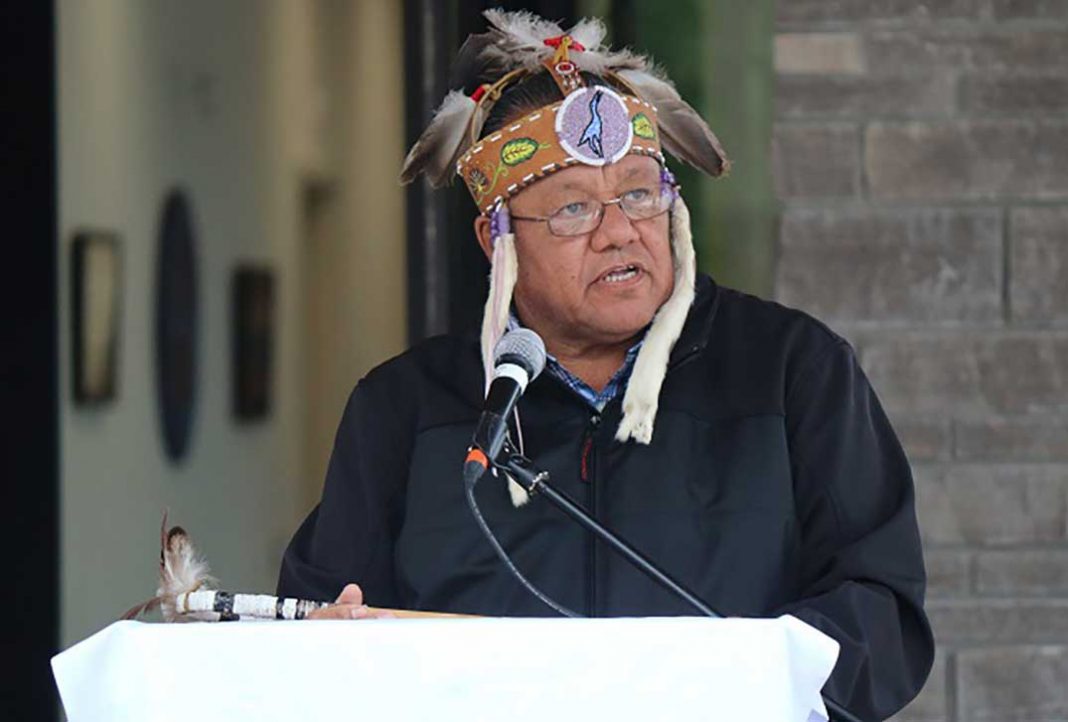M’CHIGEENG – Anishinabek Nation Grand Council Chief Glen Hare says the proposed governance agreement members of the Anishinabek Nation have with the federal government will mean that First Nations will have their own laws and jurisdictions, not relying on the government.
“What it will mean is that we will have our own laws and jurisdictions including child welfare, education, land resources and more,” said Grand Council Chief Hare. “It means we (as Anishinabek First Nations) are going to have the say on what happens in our communities, not the government.”
However, he pointed out “the agreement does not release the Ministry of Indian Affairs from its funding requirements. They will still have a fiduciary responsibility to First Nations.”
And he cautioned, “the agreement does not go into treaty areas. For example, if any community signs an agreement with a big mining company, for instance, it is their business, not the rest of the Anishinabek Nation communities or the government. This is all protected in the agreement.”
Members of the 60,000-member Anishinabek Nation met in Sault Ste. Marie last week to learn about the proposed governance agreement with the Canadian government.
“I hope that the majority of our communities ratify the agreement with the government,” said Grand Council Chief Hare, noting that ratification of the agreement is proposed to take place in early spring of 2020.
“There is community engagement to do first,” said Grand Council Chief Hare. He said the meeting last week in the Sault was designed for community members, youth and elders to learn about the proposed governance agreement with the Canadian government.
“The bottom line of the whole thing is that all our leaders agree that we have to start to run our own communities, not the federal government,” stated Grand Council Chief Hare. “I relayed that we’re there, we have one more step to take.”
He noted that one of the things that the Anishinabek Nation leaders heard from those at the meeting was that concerning the present terms of band councils and chiefs. “We are encouraging the leadership to go with four-year council terms. That way there is consistency with chief and council and time to finalize major projects.”
“Also, I have mentioned myself and Anishinabek Nation chiefs are very disappointed the government signed agreements recognizing the Métis Association. We’ve always said they (Métis) have no land, and a lot of them are member of our communities; they are First Nations people, not Métis.”
Culminating almost a quarter-century of negotiations, the governance agreement would formally recognize First Nations for the first time as governments and legal entities able to pass their own laws governing citizenship, elections, culture, language and fiscal administration.
If ratified, the governance agreement will remove Anishinabek First Nations from major portions of the Indian Act and provide the opportunity to talk about other agreements about issues like land, justice and health. And, it would significantly increase federal funding provided for governance-related functions, culture and language development, and the costs of implementing the new deal.





